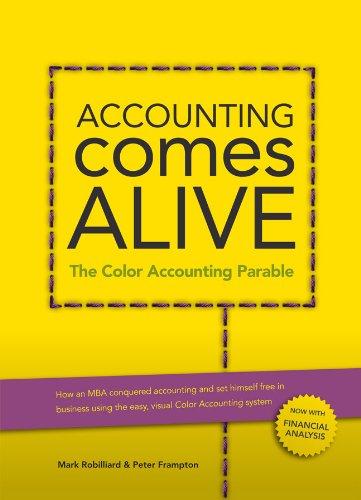Question
Intermediate 2 Terry Part #9: Chapter 16 To practice recording stock options and calculating basic and diluted EPS. (See Topic Guides NI&EPS 13, 14, 16,
Intermediate 2 Terry Part #9: Chapter 16
To practice recording stock options and calculating basic and diluted EPS. (See Topic Guides NI&EPS 13, 14, 16, 20).
Information:
On January 1st, Terrys Board of Directors issued the management team 128,040 stock options for Terrys $1 par common stock. Terrys stock price on that day was $3.60/share. The Board set the strike price of the options at $5.20/share to encourage the management team to focus on improving the companys stock price. The average stock price during Year 3 was $6.80/share. The options will vest 5 years from issuance and, according to the Black Scholes Model, have a fair value of $4.70 each on the date issued. Terrys management was pleased with the decision because this is the first time that the Board has offered them options as a form of compensation, although they were disappointed that the options could only be used to purchase stock, not redeemed for their fair value.
Later in the year, on December 1 when a market change significantly dropped stock prices, Terrys Board voted to repurchase 18,625 shares of common stock. The stock price on the day of the purchase was $8.00/share. Neither the stock options nor this purchase of treasury stock have been recorded.
Terrys management team has also asked you to determine the correct EPS numbers for the year. Up until the issuance of the options, the company had a simple capital structure. Now, though, the company will need to present both basic and diluted EPS on its Income Statement. In addition, they would like to know the effect of the stock options and additional dividend, if any, on the following ratios:
Debt-to-Equity ROA
Assignment:
Calculations
- Calculate each of the two (2) ratios before you make any adjustments.
- Make the appropriate journal entries to correctly record the stock options and repurchase.
- Make the appropriate journal entry to correctly record the tax effect of the stock options. Please note that for tax purposes, equity options are treated as long-term deferred tax assets (for the future tax breaks that they will provide). In making your tax calculations, assume that Terrys management will exercise the options as soon as they can (at the beginning of Year 6).
Hints:
- While Terry does keep separate accounts for all of their Additional Paid-in Capital, they combine all of these amounts on the balance sheet, so you should not add a new account to the B/S for the stock option PIC.
- You will need to change the note under the Common Stock line in the Balance Sheet to include both the Year 2 and Year 3 end of year shares outstanding.
- Dont forget to adjust your Statement of Cash Flows for the purchase of the treasury stock.
- As with pensions, you have to make a special adjustment in the CFO section of the Statement of Cash Flows; you cant just record the change in Additional PIC (since those are equity accounts). In this case, you can record a Stock Option Compensation line that equals the total change in Executive Salary Expense for these stock options.
- Dont forget to calculate the weighted average common stock shares outstanding before you calculate the new basic EPS. Also, under GAAP (ASC 260-10-45-28A), employee stock options are included in the diluted EPS calculation, even if they havent yet vested. You treat them just like any other outstanding stock option, only weighting them if they were awarded in the middle of the year.
- Dont forget that Terrys tax rate will change in Year 5.
1. Terry uses Executive Salaries Expense to record all of the compensation for the management team. Do NOT create a new account for this new compensation.
Step by Step Solution
There are 3 Steps involved in it
Step: 1

Get Instant Access to Expert-Tailored Solutions
See step-by-step solutions with expert insights and AI powered tools for academic success
Step: 2

Step: 3

Ace Your Homework with AI
Get the answers you need in no time with our AI-driven, step-by-step assistance
Get Started


